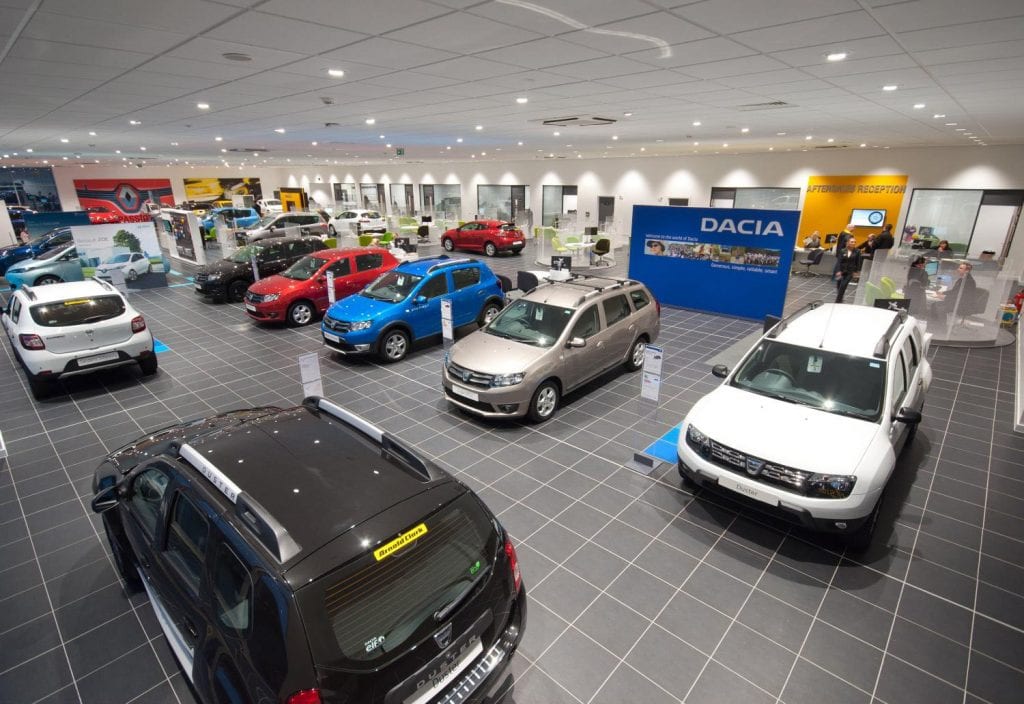
The UK’s new car market dropped by 6.8% in 2018 as CO2 levels in the country rose for the second year in succession.
According to the Society of Motor Manufacturers and Traders (SMMT), a total of 2,367,147 units were sold in the full twelve months. In December, the market fell by 5.5% compared to the same period in 2017. This capped a turbulent year of model changes, regulatory upheaval and continued anti-diesel policies, adding to ongoing declines in consumer and business confidence.
The drop in diesel sales did not help, with December marking the 21st consecutive month of decline for the market. In 2018, diesel fell 29.6% to record a market share of just 31.7%. In December, the fuel fell 26.3%. This is despite new emissions tests showing diesels deliver in the real world. Growth in registrations of petrol (8.7%) and alternatively fuelled vehicles (20.9%) throughout 2018 replaced some of the loss but not enough to offset the full shortfall as many diesel owners adopt a ‘wait and see’ approach, keeping hold of their older, more polluting vehicles for longer.
The strong growth in the AFV market was led by petrol-electric hybrids, growing 21.3% to 81,156 units across the year. Plug-in hybrids (PHEVs) grew 24.9%, albeit on smaller numbers, however, the SMMT reports that growth is slowing following the removal of the government’s plug-in car grant for these vehicles from October.
Demand for PHEVs grew almost 30% in the first ten months, but year on year increases fell to 3.1% and 8.7% in November and December respectively. Pure electric cars (EVs), meanwhile, grew 13.8% in the year but, with just 15,474 registered, they still make up only 0.7% of the market. Given the reduction in government incentives, the pace of growth of plug-in cars is now falling significantly behind the EU average.
Pollution rising
The figures come as the SMMT publishes data showing the UK fleet average CO2 rose for a second successive year, by 2.9% to 124.5g/km. This is despite the investment by manufacturers in more efficient cars, including EVs, with the average new or updated model emitting 8.3% less CO2 than those they have replaced. The rise is significant, considering last year CO2 rose just 0.8% on 2016 when the diesel market fell 17.1%.
According to the SMMT, diesels are, on average, 15-20% more efficient than petrol equivalents and so have a substantial role to play in addressing climate change. The association says that gains made by the sector since CO2 records began in 1997 (when the new car fleet average was 189.8g/km) are being undermined by the shift away from diesel and disappointing growth in alternatively fuelled vehicles.
Mike Hawes, SMMT chief executive, comments: “A second year of substantial decline is a major concern, as falling consumer confidence, confusing fiscal and policy messages and shortages due to regulatory changes have combined to create a highly turbulent market. The industry is facing ever-tougher environmental targets against a backdrop of political and economic uncertainty that is weakening demand so these figures should act as a wake-up call for policymakers.
“Supportive, not punitive measures are needed to grow sales because replacing older cars with new technologies, whether diesel, petrol, hybrid or plug-in, is good for the environment, the consumer, the industry and the exchequer.
“Despite the overall decline in 2018, demand for new cars in the UK remains solid, with volumes on a par with the preceding 15-year average and the market still the second biggest in the EU, behind Germany. It is also one of the most diverse, with buyers able to choose from some 350 different models available in fuel types and body styles to suit all driving needs.”




You must be logged in to post a comment.